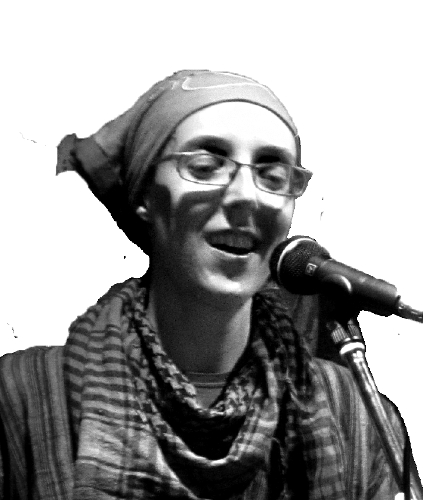As I write, it is Remembrance weekend; a difficult one for many of us. For anyone who has lost family and friends to war, whether soldiers or civilians, it is important to have space to remember those people as well as the circumstances of their loss. Unfortunately, the pomp and circumstance surrounding our annual remembrance ceremonies based around the ‘victory’ of the First World War can be troubling for peace activists such as myself.
Most years I am involved with alternative remembrance events; events that are about addressing the realities of war and re-committing to work towards peace, using nonviolent means wherever possible.
My grandfather fought in the First World War. Growing up, I found it hard to understand how he didn’t oppose the Second World War having lived through the front lines of the First. My mum, a lifelong pacifist, had struggled with her father’s position as well, and years ago she explained to me her hard-learned understanding of his perspective. It’s actually pretty simple – he couldn’t believe that the trauma and loss he experienced in the trenches was for nothing. He had to believe, when the second call came, that there was a just cause and a just response based in military action.
The remembering we do as peace activists, and the songs we sing to help facilitate that reflective space, are about just the opposite experience – responding to the repetition of acts of war; the traumatising and killing of (mainly) young men drafted into soldiers; the killing of countless civilians deemed ‘collateral damage’; the propaganda and funding of the war machine.
Whether it’s Eric Bogle’s ‘They told all the fine young men, when this war is over, there will be peace, and the peace will last forever….’ or Phil Och’s ‘it’s always the old who lead us to the war, always the young to fall, now look at all we’ve won with the sabre and the gun, tell me – is it worth it all?’, this response to war after war after war is about finding a different way to redress inequalities and global-scale disagreements.
It is about reflecting on the truths of war and really committing to working to prevent it. It is about singing (and acting on) Jo Cox’s wisdom that ‘we are far more united, and have much more in common with each other than things that divide us.’
One of the songs I sang this weekend shares the experiences of twenty-first century soldiers. I wrote the words of Israeli ex-soldiers to music – young people who are part of the ‘Breaking the Silence’ group. They speak of their experiences occupying Palestine, and we all sing the chorus together in the words of one soldier: ‘I’ve only seen your faces through the barrel of my gun - now I think it’s time to meet another way.’ The simple truth of it still catches in my throat sometimes when I am singing.
A much older song, sung by soldiers during the First World War, also catches in my throat, no matter how many times I sing or hear it. Every verse reminds us of the inequalities of the military hierarchy – poking fun at the captain drinking all the company’s rum or the general pinning another medal on his chest – and then the final line ‘If you want to see the private, I know where he is… he’s hanging on the old barbed wire.’ The truth is hard to hear.
Pete Seeger was once backstage after playing a concert, having sung his peace anthem, ‘Where have all the flowers gone’. A man who seemed troubled came to find him after the concert and asked to sing the song with him again. He took a gun out of his pocket and put it on the table between them. He told Pete: ‘I came here to kill you tonight. I felt so betrayed by your peace songs when I was a soldier in Vietnam, and I came here to shoot you. But hearing you lead the people singing “Where have all the flowers gone” tonight changed my heart. Now that we have sung this song together, I can’t do it. I can’t kill you.’
At our White Poppy gathering in Edinburgh this year, we listened to songs and stories about the realities of war, the impact on soldiers and civilians alike, but we also sang about hope.
We sang about the women who disarmed the Hawk jet preparing to go to Indonesia in 1996, and we celebrated Sam and Daniel, who came so close to disarming a fighter jet bound for Saudi Arabia earlier this year. We celebrated the women of Greenham Common Peace Camp, sometimes singing daft songs with serious messages.
We celebrated the ICAN treaty and the huge step towards nuclear disarmament that we’ve taken this year. And every time we sang together, we were reminded of our community, of our shared hope that another world is possible. Peace is possible.


